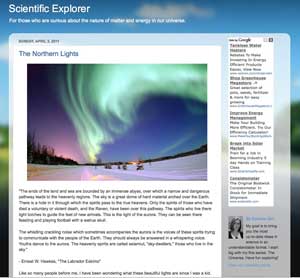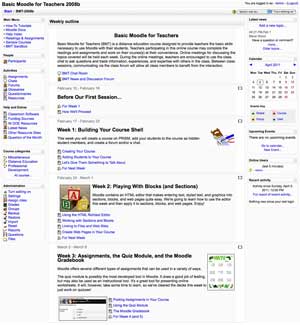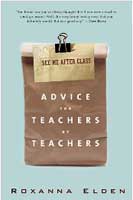mathdittos2.com
...dedicated to...hmmm, we're still figuring that one out... |
|
Yesterday's posting, The Northern Lights, was chock full of gorgeous photos and illustrations of auroras. Many of the other postings are pretty much text only, such as part of Very Hot, Very Cold - Superfluids Demonstrate the Strangeness of Atoms shown at right, but it appears Science Girl is learning to use more graphics and video as she warms to her task. I just had time to scratch the surface of the site and skim parts of several postings, but it looks like it's going to be another good science site for teachers, parents, and students. Autism Curriculum A CEC SmartBrief last Friday had a link to a T.H.E. Journal article, CARD Launches Grant Program To Develop Autism Curriculum. The report points readers to The Center for Autism and Related Disorders' Skills 4 America and Card Skills pages. According to T.H.E. Journal, the organization "is offering one-year scholarships to Skills, a Web-based tool for parents and educators to develop lesson plans and track students' progress in eight sectors of child development." That's not a lot of information about the site or program, but frankly, it's as far as I wanted to go late on a Sunday afternoon after tilling up a good bit of our garden today. Odds 'n' Ends
Peggy blogs at Peg with a Pen. Winnie Hu's Paterson Teacher Suspended Over a Post on Facebook on The New York Times reminds us to be careful of what we post online. What the suspended teacher apparently wrote on Facebook pales in comparison with Mr. Teachbad's recent Pure Rant. Of course, there's an exception to every rule, as is hilariously illustrated by Mr. Teachbad's Blog of Teacher Disgruntlement. Parts of many of Mr. Teachbad's posting are unquotable here, as they include words we sometimes think or utter when we hit our thumb with a hammer, but here's a G-rated sample of his latest (fictitious) effort, Teacher Loses It.
The story will probably go viral in email forwards sent out by conservatives offended by Teachbad's humor and too dimwitted to figure out it was fiction. But it sure illustrates what we face in the classroom sometimes. Locally, the Terre Haute Tribune-Star had a good column and editorial about education yesterday. After reading Mike Lunsford's A Lesson Plan for Public Schools, you'd think he's a teacher. And he is, so probably no one in the majority party in Indianapolis will take much notice of his sound, common sense proposals for improving education in Indiana. The Tribune-Star didn't pull any punches in chastising Governor Daniels and the rest of the school "reform" crowd in Indy for pushing for the largest school voucher program in the nation. Editor Max Jones points out in Poor Strategy for Reform that the proposed bill is probably unconstitutional, as it allows public funds to support religious schools. He winds up by pointing out that "with state resources dwindling, the diversion of taxpayer money to coffers of private schools is not only misguided, it’s irresponsible." This is a short post for a Monday, but as I said, I've been gardening instead of writing. And of course, I'm also resting up before watching tonight's NCAA championship game. Go Bulldogs!
Send Feedback to |
|
NSF Video Lessons I hadn't looked in at the National Science Foundation's Science Nation site since they began a new season in January. They've already added eleven new "issues" that each include a short video, text of the video presented in an attractive format, and related materials and sites. Their most recent offering, Lord of the Tree Rings, runs a bit less than three minutes, but packs a lot of interesting information into that time. All videos are also available for download in high quality Quicktime format, so teachers may project them if desired. I can see teachers using these videos in the classroom for introductions to lessons or simply as fillers for odd moments when things wind up early. From Lord of the Tree Rings:
Rhee the Reformer Sabrina Stevens Shupe didn't have many words to add to what "a ton of smart people have already written...about testing 'irregularities' in the DC Public Schools under then-chancellor Michelle Rhee." She did, however, create the biting video at left and included it in her Rhee the Reformer: A Cautionary Tale posting on her Failing Schools blog. On her YouTube page, she describes the video as "A Seuss-style interpretation of Michelle Rhee's 'Erase to the Top' scandal." Endeavour Launch Pushed Back to April 29
Quote of the Day Diane Ravitch, writing in The Texas Miracle Revisited on her Bridging Differences blog on Education Week, wrote:
Prince George's County Schools Ordered to Pay $5.9 Million to Foreign Recruited Teachers Already facing a $155 million budget shortfall, the Prince George’s County Schools were ordered by the Labor Department to pay "more than 1,000 teachers recruited from foreign countries...$5.9 million in back wages and penalties." Robert Samuels relates in Federal investigation: Prince George’s owes foreign teachers millions:
Prince George’s Superintendent William R. Hite, Jr. said that he plans to appeal the findings. Tips for Potential Online Instructors eSchoolNews Managing Editor Laura Devaney shares some good tips from the 2011 Online Teacher of the Year, Kristin Kipp, for those who may be venturing into teaching an online course for the first time. In "Teacher cheerleaders" make online learning successful, Devaney notes that Kipp's school, the 21st Century Virtual Academy in Jefferson County, Colorado, enrolls many students who are also taking some classes at their local high school and "are still in "school mode" for their online courses. The Academy also requires new students to "take a course introducing them to the principles of online learning, including time management and how to use virtual calendars and a course management system." Kipp emphasizes communication and positive reinforcement (She didn't call it that.) with her online students. Devaney writes that Kipp "uses a handful of key strategies to remain in communication with her online students and to ensure that they are engaged and successful in their online courses, including requiring students to use message boards and participate in group discussions with a set number of required postings. Kipp's list of key strategies includes:
I'll also add that it takes a lot of time to create such a course. I had a good text (print and online) to use, in addition to a lot of "How-to's" I'd written over about a year to help construct the class. It really helps if you can beta test a course with a small group to shake out any bugs in your planned lessons and task analysis. I also had a giant advantage in having an experienced online instructor at Ivy Tech in Terre Haute go over my course before we even beta tested it. But, while constructing and teaching the online course, I was regularly working 80 hour weeks to stay up with three sections of the class! The images at left and right (click on image for larger view) are the final versions of the front page and the "sandbox" for a course I called Basic Moodle for Teachers. The front page organized the course lessons and provided links to materials, while the sandbox was a play area for the students to try out their new skills. I erased and restored the sandbox to its original version periodically. If you're interested in playing around with Moodle on your own, I'd recommend going to the Moodle Download page and getting one of the free MAMP or XAMP packages. Setup and installation on your own computer is really easy.
Debate on Online K-12 Classes Trip Gabriel has an excellent article on The New York Times about whether online classes, mainly for high school students, are a good idea or a sneaky way to boost graduation rates or funnel public money to for-profit virtual schools. In More Pupils Are Learning Online, Fueling Debate on Quality , Gabriel focuses on in Memphis where all high school students are required to take one online class to graduate. He winds up his piece with some eye-popping information about the Superintendent of Public Instruction in Idaho accepting "$50,000 in contributions from online education companies," one of which "received $12.8 million from Idaho last year." Speaking of Idaho, Republican lawmakers there are poised to push through "emergency clauses onto bills that already cleared the 2011 Idaho Legislature" that would "prevent a planned referendum campaign from delaying implementation of the laws until after the November 2012 election." The laws in question are the creation of the Superintendent of Public Instruction in the state, Tom Luna. They would "phase out tenure for teachers; restrict collective bargaining; introduce merit pay; and shift money in the public schools' budget to fund classroom technology upgrades and the pay-for-performance plan." Jessie L. Bonner writes in Idaho Lawmakers Move Bills to Prevent Ed "Reform" Delay [my quotes around reform] that:
Night Sky
For photography buffs, I messed around with some fairly high f/stops before fully opening up the lens to f/5.6 (one of the drawbacks of my favorite lens, a Canon EF-S 17-85mm Having tried my best to record the lovely evening sky, I turned my camera up at about a 70o angle to try and get an image of the constellation Orion. The lens was still wide open, and I tried exposure times of ten to twenty-five seconds. Interestingly, the longest exposures recorded too many faint stars, making it hard to pick out the main stars of the constellation (or the main part of it). I ended up going with the fifteen second exposure shown at left. While a larger image (Click on the image to open a larger version in a new window or tab.) clearly shows Orion, I had to enhance the small image at left in Photoshop a bit to get the four corners and the sword of the constellation to show. It's interesting to note the red tinge to Betelgeuse, the upper left star in Orion. Betelgeuse is a variable red giant "whose apparent magnitude varies between 0.2 and 1.2, the widest range of any first magnitude star" according to Wikipedia. While Rigel (lower right corner) is termed a "blue supergiant," it actually has only a slight bluish tinge in the photo. Orion is a great constellation to get kids interested in astronomy. It has two of the brightest stars in the winter and spring sky, along with the Orion Nebula. On warm spring nights such as last night, Orion is easy to pick out in the night sky. Stories of how far away Betelgeuse is (about 640 light-years is the current estimate), and whether it might have already exploded in a supernova, but the light telling the tale hasn't reached us yet, tend to grab students' interest. My Camera Gear Two years ago I finally got back to an SLR camera. After some bad experiences with Nikon "service," I "went home" to Canon for my digital SLR. I still have a 30+ year-old Canon AE-1 SLR in good working order that I bought new when I got out of professional photography. As a wedding photographer in the 70's, I lugged around a Mamiya RB-67 and various backup cameras, so the bulk of today's SLRs doesn't bother me much.
Like most folks, I made the mistake of purchasing my XSi with the standard 18-55mm lens. From that experience, I would recommend folks buy a camera body and a better lens separately than the disappointing kit lens supplied by Canon. I use my 17-85 lens as my standard, walking around lens. It's a good bit heavier than the kit lens, but has better range and image quality. It's not a professional quality lens, but is definitely a step up from the standard zoom lens. And of course, my XSi is now a bit behind the times. When I bought it, the Canon EOS Rebel T1i If you're camera shopping, be sure to check out whatever brand and model you're interested in on both Buy.com Odds 'n' Ends You'll have to excuse my getting so far off the education track today. You see, I can find lots of education related columns and articles, but after a while, they all read the same. Just down the road a bit at the Northeast Sullivan Schools, they plan to lay off five or six elementary teachers and raise elementary class sizes to 30 or more. Whether it's six at Northeast or hundreds in Indianapolis Public Schools and Cleveland, or thousands in Detroit and Los Angeles, the story is the same. Federal stimulus funds are running out. States are taking in less money and cutting schools along with lots of other essential services. Then enter the "reformer" state supers like Idaho's Tom Luna or our own resident non-listener, Tony Bennett, and the radical school "reforms" touted by Republican governors, all the while making snide remarks about experienced teachers who've dedicated their lives to improving the lives of the children they teach. It isn't pretty. So...sometimes I just stage my own little personal revolt and write about the evening sky or my favorite constellation. Teachers' Domain
Other items of interest highlighted in the newsletter include:
While I've mentioned Teachers' Domain on Educators' News a number of times, it's one of those excellent, free, teacher resource sites that bears repeating. PBS Teachers
EARTH: The Operators' Manual will premiere on PBS on Sunday, April 10, 2011. From the promo page and the embedded trailer there (also captured the great shot at left from the trailer):
The host, Richard Alley, points out at the end of the trailer, "And by the way, it's operators', plural. We're all in this together." For a Quick Grin (for "Linux and Mac gurus") Roy Grimes, a tech specialist for the Orleans Community School Corporation in Indiana, posted the following funny message this morning on the HECC listserv:
Thanks, Roy. Oregon Workshop An email yesterday from Computer Science Teachers Association (CSTA) Executive Director Chris Stephenson told of a November tech conference with an emphasis on women in technology. Rather than try to do my own summary, let me just share Chris's message with appropriate links.
About Those Property Tax Caps David A. Lieb and Hasan Dudar begin Tax caps creating new hurdles for towns, schools:
Lieb and Dudar show the quandary Indiana Governor Mitch Daniels' property tax cap program (and now, part of the state constitution) has caused communities in Indiana and its public schools. Sadly, the writers let Daniels off the hook for his fiscally conservative road map that is wrecking the state, but may get him noticed for the 2012 Republican presidential nomination. They do, however, go on to show how tax caps, primarily engineered by Republican governors around the country, are causing all sorts of problems. I realize that Mitch Daniels hates teachers and public schools, but his tax caps have made it so our poor county can't even fix the roads! Other Interesting Stuff
eSchoolNews editor Dennis Pierce has an excellent editorial today, Frenemy of the people. He relates that the "Education Department’s first-ever conference on strengthening school labor-management relations in February" got him thinking about the current relationship between the Obama/Duncan Administration and school leaders and teachers' unions. He writes about "the seemingly schizophrenic nature of Obama administration policy" that has produced " an undercurrent of distrust in Obama administration officials who have been guilty of practicing the 'ABCs' [accuse, blame, criticize] themselves" among school board members, administrators, and teachers. A gems from the piece:
More in his field, Pierce notes that "ed-tech advocates...are deeply disappointed with the administration’s plan to eliminate the Enhancing Education Through Technology (EETT) program," as "this plan would take away the only federal program dedicated to investing in technology and training for K-12 educators." Walt Gardner takes a look at the legalities of current voucher programs in Back-Door Approach to Funding Religious Schools. If you're hoping your state will rule school vouchers an unconstitutional blurring of the line between church and state, Walt explores the legal reasons why that may not happen. Deborah Meier wonders in today's People vs. Dollars on the Bridging Differences blog, "Maybe Madison, Wisconsin, is the beginning of a new cycle." She also asks some hard questions about who is driving education "reform" today and what their end purpose is.
She adds:
Trip Gabriel's Bloggers Challenge President on Standardized Testing is a rehash of last week's Presidential gaff on standardized testing and some postings on Education Week. I guess the piece keeps the subject somewhat in the public eye, but there's nothing new in it. Hey! I planted broccoli yesterday!
Ah, but there is something slightly related to teaching here: If you can tough it out to retirement, there is life after teaching! I wrote on Senior Gardening yesterday:
Transplanting broccoli and other brassicas (cole crops) in Indiana on April 6 really isn't all that amazing. I planted our brassicas on April 7 the previous two years with excellent results. Lots of folks in our hardiness zone (5) are already getting their gardens in. Broccoli can handle a little frost. But I do need to get out tomorrow and get some blood meal around it. Several years ago I didn't, and the deer ate it off to the ground! I learned something from that experience (beyond remembering to apply blood meal), as most of the plants came back from the roots and still produced heads of broccoli, although much later and smaller than usual. And while I do get questions and comments from readers, they never have to ask to go to the restroom, get in fights in the hall, forget their lunch money... Black Out as NYC Schools Chancellor Cathleen Black Is Out as City Schools Chancellor by Elissa Gootman and Michael Barbaro relates that after just three months on the job, New York City Mayor Michael Bloomberg has asked Cathie Black to step down as schools chancellor. Jacob Bernstein adds a bit of commentary to the story in The Education of Cathie Black, as does Valerie Strauss in What Cathie Black’s resignation means for school reform. A Huge Star Detonation in Deep Space
Dozens of telescopes, including NASA's Swift, Hubble Space Telescope and Chandra X-ray Observatory, have turned to study the source of the explosion. Designated GRB 110328A, the source has repeatedly flared - more than five times since April 3. While astronomers have previously detected stars disrupted by supermassive black holes, "none have shown the X-ray brightness and variability seen in GRB 110328A."
Odds 'n' Ends
With a forecast and current conditions nothing short of glorious for the next ten days, I'm going to be busy getting some of our hardier transplants into the ground over the next week. I hope your start to the weekend is as nice as ours. Have a great weekend! Ads shown on this site do not represent an endorsement or warranty of any kind of products or companies shown. Ads shown on archive pages may not represent the ads displayed in the original posting on Educators' News. |
| Previous Week |
©2011 Steven L. Wood



















